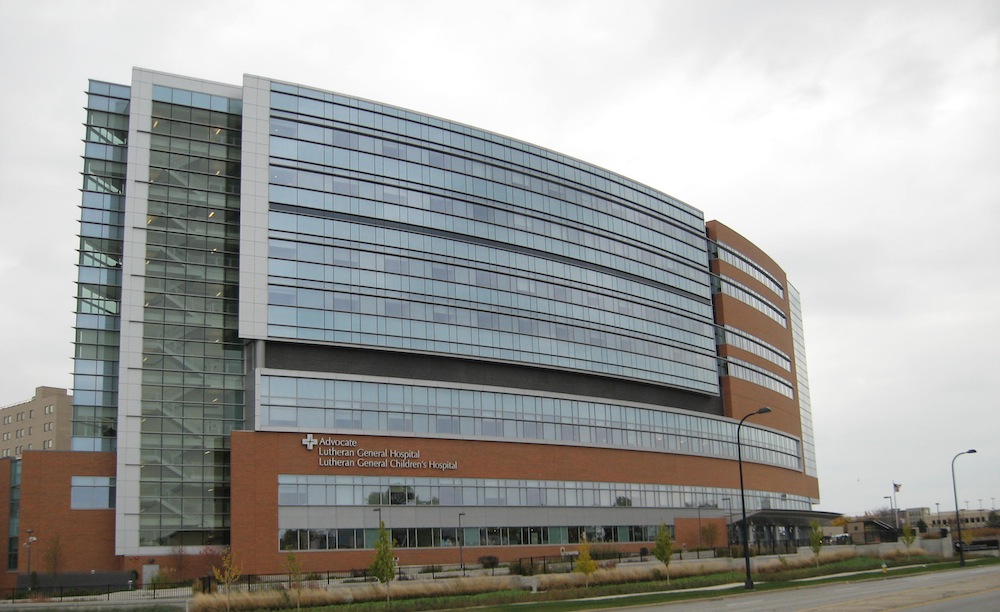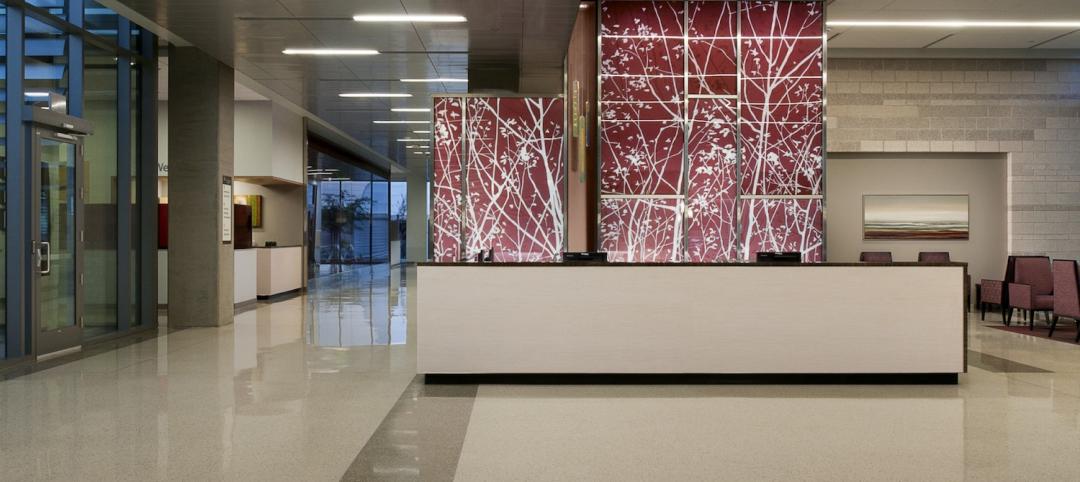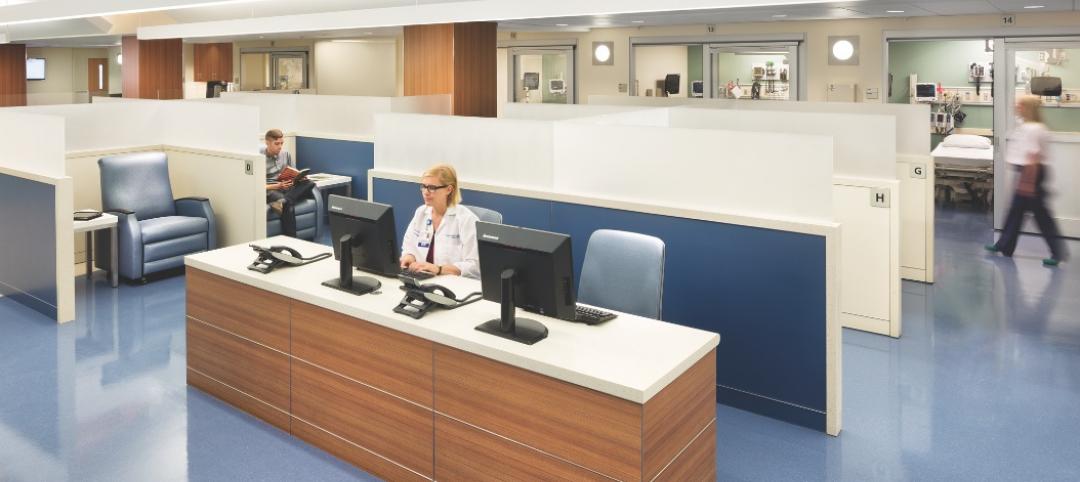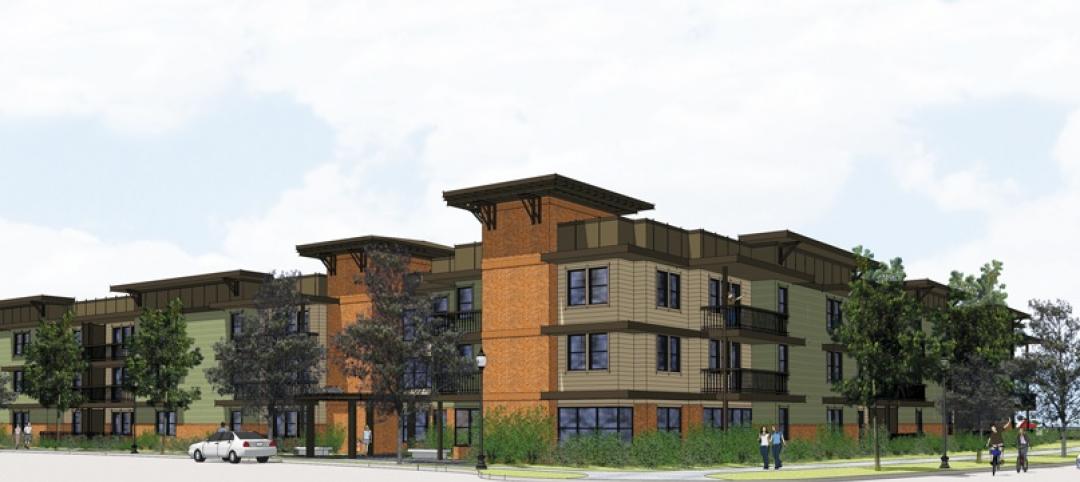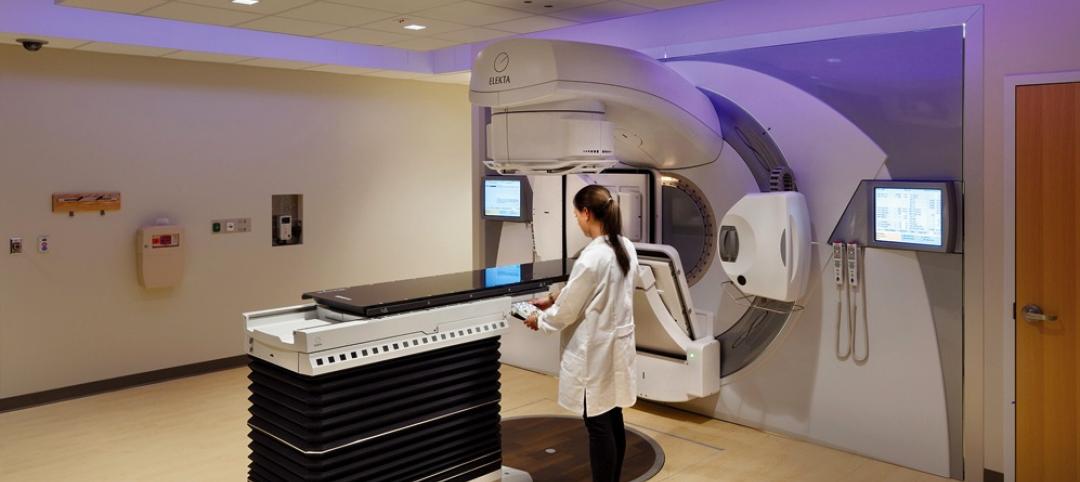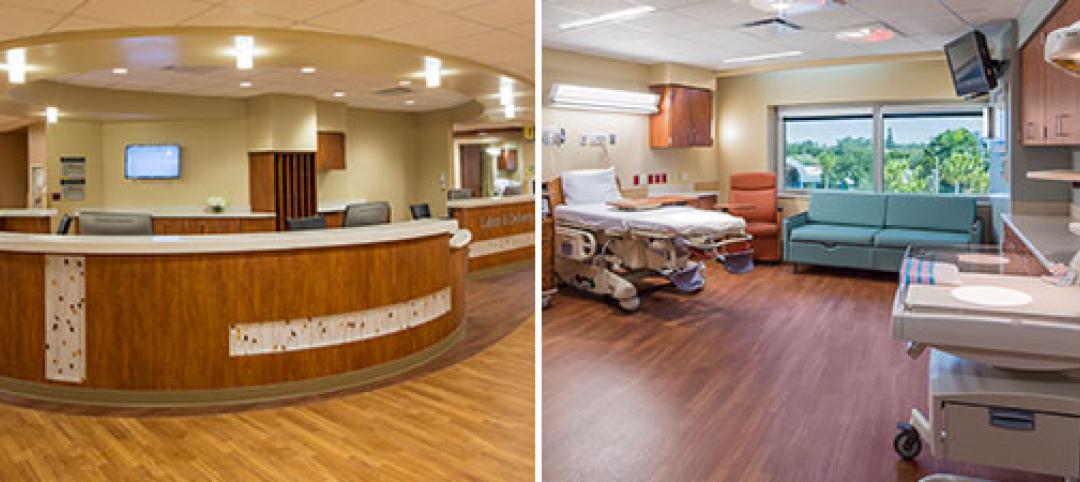Despite overall optimism in healthcare, support for the Affordable Care Act (ACA) has lessened, according to a study from Mortenson.
Nearly eight out of 10 healthcare providers feel that legislation needs significant changes or revisions. The 2015 Mortenson Healthcare Industry Study found that only one-third of providers think that the ACA would lower the per-patient cost of healthcare.
But, providers are confident in advances in facility design, IT, waste and energy reduction, and environmental improvements, and they believe that transparency and patients’ concern in their own wellness will improve the sector as a whole. The study says that 76% of healthcare providers feel “very optimistic” or “optimistic” about the future of healthcare.
The report also found that providers predict that virtual care will become more common, and that providers link physical healthcare facilities and environments with patient outcomes.
"The healthcare market is still in the process of adapting to a new normal," said Bob Nartonis, SVP and National Healthcare Market Leader at Mortenson, in a statement. "There are several challenging dynamics facing healthcare service providers today but they are optimistic as a whole. We are encouraged to see healthcare facility design, interest in the patient experience, and changes in technology continuing to drive innovation in the market."
The full report is available here.
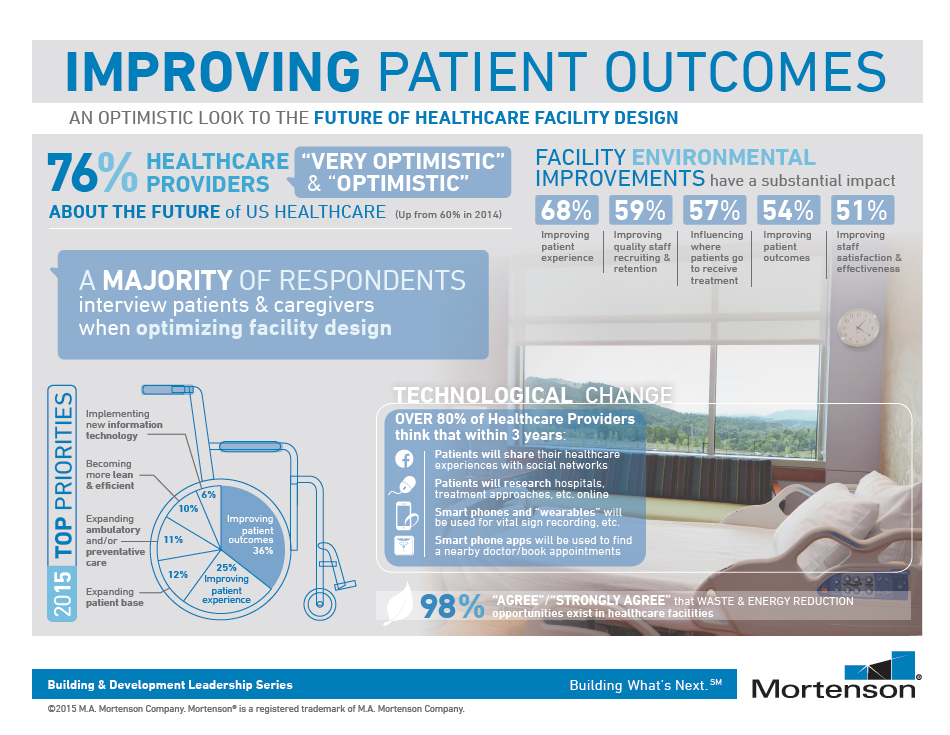
Related Stories
| Oct 30, 2014
CannonDesign releases guide for specifying flooring in healthcare settings
The new report, "Flooring Applications in Healthcare Settings," compares and contrasts different flooring types in the context of parameters such as health and safety impact, design and operational issues, environmental considerations, economics, and product options.
| Oct 30, 2014
Perkins Eastman and Lee, Burkhart, Liu to merge practices
The merger will significantly build upon the established practices—particularly healthcare—of both firms and diversify their combined expertise, particularly on the West Coast.
| Oct 21, 2014
Passive House concept gains momentum in apartment design
Passive House, an ultra-efficient building standard that originated in Germany, has been used for single-family homes since its inception in 1990. Only recently has the concept made its way into the U.S. commercial buildings market.
| Oct 21, 2014
Hartford Hospital plans $150 million expansion for Bone and Joint Institute
The bright-white structures will feature a curvilinear form, mimicking bones and ligament.
| Oct 16, 2014
Perkins+Will white paper examines alternatives to flame retardant building materials
The white paper includes a list of 193 flame retardants, including 29 discovered in building and household products, 50 found in the indoor environment, and 33 in human blood, milk, and tissues.
| Oct 15, 2014
Harvard launches ‘design-centric’ center for green buildings and cities
The impetus behind Harvard's Center for Green Buildings and Cities is what the design school’s dean, Mohsen Mostafavi, describes as a “rapidly urbanizing global economy,” in which cities are building new structures “on a massive scale.”
| Oct 13, 2014
Debunking the 5 myths of health data and sustainable design
The path to more extensive use of health data in green building is blocked by certain myths that have to be debunked before such data can be successfully incorporated into the project delivery process.
| Oct 12, 2014
AIA 2030 commitment: Five years on, are we any closer to net-zero?
This year marks the fifth anniversary of the American Institute of Architects’ effort to have architecture firms voluntarily pledge net-zero energy design for all their buildings by 2030.
| Oct 8, 2014
Massive ‘healthcare village’ in Nevada touted as world’s largest healthcare project
The $1.2 billion Union Village project is expected to create 12,000 permanent jobs when completed by 2024.
| Oct 3, 2014
Designing for women's health: Helping patients survive and thrive
In their quest for total wellness, women today are more savvy healthcare consumers than ever before. They expect personalized, top-notch clinical care with seamless coordination at a reasonable cost, and in a convenient location. Is that too much to ask?


